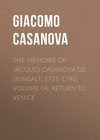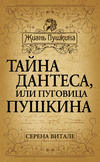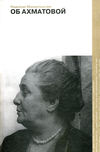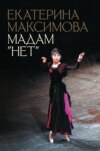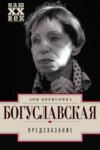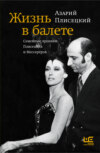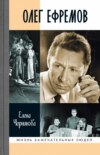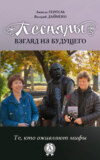Buch lesen: «The Memoirs of Jacques Casanova de Seingalt, 1725-1798. Volume 04: Return to Venice»
CHAPTER XVI
A Fearful Misfortune Befalls Me—Love Cools Down—Leave Corfu and Return to Venice—Give Up the Army and Become a Fiddler
The wound was rapidly healing up, and I saw near at hand the moment whenMadame F– would leave her bed, and resume her usual avocations.
The governor of the galeasses having issued orders for a general review at Gouyn, M. F–, left for that place in his galley, telling me to join him there early on the following day with the felucca. I took supper alone with Madame F–, and I told her how unhappy it made me to remain one day away from her.
"Let us make up to-night for to-morrow's disappointment," she said, "and let us spend it together in conversation. Here are the keys; when you know that my maid has left me, come to me through my husband's room."
I did not fail to follow her instructions to the letter, and we found ourselves alone with five hours before us. It was the month of June, and the heat was intense. She had gone to bed; I folded her in my arms, she pressed me to her bosom, but, condemning herself to the most cruel torture, she thought I had no right to complain, if I was subjected to the same privation which she imposed upon herself. My remonstrances, my prayers, my entreaties were of no avail.
"Love," she said, "must be kept in check with a tight hand, and we can laugh at him, since, in spite of the tyranny which we force him to obey, we succeed all the same in gratifying our desires."
After the first ecstacy, our eyes and lips unclosed together, and a little apart from each other we take delight in seeing the mutual satisfaction beaming on our features.
Our desires revive; she casts a look upon my state of innocence entirely exposed to her sight. She seems vexed at my want of excitement, and, throwing off everything which makes the heat unpleasant and interferes with our pleasure, she bounds upon me. It is more than amorous fury, it is desperate lust. I share her frenzy, I hug her with a sort of delirium, I enjoy a felicity which is on the point of carrying me to the regions of bliss…. but, at the very moment of completing the offering, she fails me, moves off, slips away, and comes back to work off my excitement with a hand which strikes me as cold as ice.
"Ah, thou cruel, beloved woman! Thou art burning with the fire of love, and thou deprivest thyself of the only remedy which could bring calm to thy senses! Thy lovely hand is more humane than thou art, but thou has not enjoyed the felicity that thy hand has given me. My hand must owe nothing to thine. Come, darling light of my heart, come! Love doubles my existence in the hope that I will die again, but only in that charming retreat from which you have ejected me in the very moment of my greatest enjoyment."
While I was speaking thus, her very soul was breathing forth the most tender sighs of happiness, and as she pressed me tightly in her arms I felt that she was weltering in an ocean of bliss.
Silence lasted rather a long time, but that unnatural felicity was imperfect, and increased my excitement.
"How canst thou complain," she said tenderly, "when it is to that very imperfection of our enjoyment that we are indebted for its continuance? I loved thee a few minutes since, now I love thee a thousand times more, and perhaps I should love thee less if thou hadst carried my enjoyment to its highest limit."
"Oh! how much art thou mistaken, lovely one! How great is thy error! Thou art feeding upon sophisms, and thou leavest reality aside; I mean nature which alone can give real felicity. Desires constantly renewed and never fully satisfied are more terrible than the torments of hell."
"But are not these desires happiness when they are always accompanied by hope?"
"No, if that hope is always disappointed. It becomes hell itself, because there is no hope, and hope must die when it is killed by constant deception."
"Dearest, if hope does not exist in hell, desires cannot be found there either; for to imagine desires without hopes would be more than madness."
"Well, answer me. If you desire to be mine entirely, and if you feel the hope of it, which, according to your way of reasoning, is a natural consequence, why do you always raise an impediment to your own hope? Cease, dearest, cease to deceive yourself by absurd sophisms. Let us be as happy as it is in nature to be, and be quite certain that the reality of happiness will increase our love, and that love will find a new life in our very enjoyment."
"What I see proves the contrary; you are alive with excitement now, but if your desires had been entirely satisfied, you would be dead, benumbed, motionless. I know it by experience: if you had breathed the full ecstacy of enjoyment, as you desired, you would have found a weak ardour only at long intervals."
"Ah! charming creature, your experience is but very small; do not trust to it. I see that you have never known love. That which you call love's grave is the sanctuary in which it receives life, the abode which makes it immortal. Give way to my prayers, my lovely friend, and then you shall know the difference between Love and Hymen. You shall see that, if Hymen likes to die in order to get rid of life, Love on the contrary expires only to spring up again into existence, and hastens to revive, so as to savour new enjoyment. Let me undeceive you, and believe me when I say that the full gratification of desires can only increase a hundredfold the mutual ardour of two beings who adore each other."
"Well, I must believe you; but let us wait. In the meantime let us enjoy all the trifles, all the sweet preliminaries of love. Devour thy mistress, dearest, but abandon to me all thy being. If this night is too short we must console ourselves to-morrow by making arrangements for another one."
"And if our intercourse should be discovered?"
"Do we make a mystery of it? Everybody can see that we love each other, and those who think that we do not enjoy the happiness of lovers are precisely the only persons we have to fear. We must only be careful to guard against being surprised in the very act of proving our love. Heaven and nature must protect our affection, for there is no crime when two hearts are blended in true love. Since I have been conscious of my own existence, Love has always seemed to me the god of my being, for every time I saw a man I was delighted; I thought that I was looking upon one-half of myself, because I felt I was made for him and he for me. I longed to be married. It was that uncertain longing of the heart which occupies exclusively a young girl of fifteen. I had no conception of love, but I fancied that it naturally accompanied marriage. You can therefore imagine my surprise when my husband, in the very act of making a woman of me, gave me a great deal of pain without giving me the slightest idea of pleasure! My imagination in the convent was much better than the reality I had been condemned to by my husband! The result has naturally been that we have become very good friends, but a very indifferent husband and wife, without any desires for each other. He has every reason to be pleased with me, for I always shew myself docile to his wishes, but enjoyment not being in those cases seasoned by love, he must find it without flavour, and he seldom comes to me for it.
"When I found out that you were in love with me, I felt delighted, and gave you every opportunity of becoming every day more deeply enamoured of me, thinking myself certain of never loving you myself. As soon as I felt that love had likewise attacked my heart, I ill-treated you to punish you for having made my heart sensible. Your patience and constancy have astonished me, and have caused me to be guilty, for after the first kiss I gave you I had no longer any control over myself. I was indeed astounded when I saw the havoc made by one single kiss, and I felt that my happiness was wrapped up in yours. That discovery flattered and delighted me, and I have found out, particularly to-night, that I cannot be happy unless you are so yourself."
"That is, my beloved, the most refined of all sentiments experienced by love, but it is impossible for you to render me completely happy without following in everything the laws and the wishes of nature."
The night was spent in tender discussions and in exquisite voluptuousness, and it was not without some grief that at day-break I tore myself from her arms to go to Gouyn. She wept for joy when she saw that I left her without having lost a particle of my vigour, for she did not imagine such a thing possible.
After that night, so rich in delights, ten or twelve days passed without giving us any opportunity of quenching even a small particle of the amorous thirst which devoured us, and it was then that a fearful misfortune befell me.
One evening after supper, M. D– R– having retired, M. F– used no ceremony, and, although I was present, told his wife that he intended to pay her a visit after writing two letters which he had to dispatch early the next morning. The moment he had left the room we looked at each other, and with one accord fell into each other's arms. A torrent of delights rushed through our souls without restraint, without reserve, but when the first ardour had been appeased, without giving me time to think or to enjoy the most complete, the most delicious victory, she drew back, repulsed me, and threw herself, panting, distracted, upon a chair near her bed. Rooted to the spot, astonished, almost mad, I tremblingly looked at her, trying to understand what had caused such an extraordinary action. She turned round towards me and said, her eyes flashing with the fire of love,
"My darling, we were on the brink of the precipice."
"The precipice! Ah! cruel woman, you have killed me, I feel myself dying, and perhaps you will never see me again."
I left her in a state of frenzy, and rushed out, towards the esplanade, to cool myself, for I was choking. Any man who has not experienced the cruelty of an action like that of Madame F–, and especially in the situation I found myself in at that moment, mentally and bodily, can hardly realize what I suffered, and, although I have felt that suffering, I could not give an idea of it.
I was in that fearful state, when I heard my name called from a window, and unfortunately I condescended to answer. I went near the window, and I saw, thanks to the moonlight, the famous Melulla standing on her balcony.
"What are you doing there at this time of night?" I enquired.
"I am enjoying the cool evening breeze. Come up for a little while."
This Melulla, of fatal memory, was a courtezan from Zamte, of rare beauty, who for the last four months had been the delight and the rage of all the young men in Corfu. Those who had known her agreed in extolling her charms: she was the talk of all the city. I had seen her often, but, although she was very beautiful, I was very far from thinking her as lovely as Madame F–, putting my affection for the latter on one side. I recollect seeing in Dresden, in the year 1790, a very handsome woman who was the image of Melulla.
I went upstairs mechanically, and she took me to a voluptuous boudoir; she complained of my being the only one who had never paid her a visit, when I was the man she would have preferred to all others, and I had the infamy to give way…. I became the most criminal of men.
It was neither desire, nor imagination, nor the merit of the woman which caused me to yield, for Melulla was in no way worthy of me; no, it was weakness, indolence, and the state of bodily and mental irritation in which I then found myself: it was a sort of spite, because the angel whom I adored had displeased me by a caprice, which, had I not been unworthy of her, would only have caused me to be still more attached to her.
Melulla, highly pleased with her success, refused the gold I wanted to give her, and allowed me to go after I had spent two hours with her.
When I recovered my composure, I had but one feeling-hatred for myself and for the contemptible creature who had allured me to be guilty of so vile an insult to the loveliest of her sex. I went home the prey to fearful remorse, and went to bed, but sleep never closed my eyes throughout that cruel night.
In the morning, worn out with fatigue and sorrow, I got up, and as soon as I was dressed I went to M. F–, who had sent for me to give me some orders. After I had returned, and had given him an account of my mission, I called upon Madame F–, and finding her at her toilet I wished her good morning, observing that her lovely face was breathing the cheerfulness and the calm of happiness; but, suddenly, her eyes meeting mine, I saw her countenance change, and an expression of sadness replace her looks of satisfaction. She cast her eyes down as if she was deep in thought, raised them again as if to read my very soul, and breaking our painful silence, as soon as she had dismissed her maid, she said to me, with an accent full of tenderness and of solemnity,
"Dear one, let there be no concealment either on my part or on yours. I felt deeply grieved when I saw you leave me last night, and a little consideration made me understand all the evil which might accrue to you in consequence of what I had done. With a nature like yours, such scenes might cause very dangerous disorders, and I have resolved not to do again anything by halves. I thought that you went out to breathe the fresh air, and I hoped it would do you good. I placed myself at my window, where I remained more than an hour without seeing alight in your room. Sorry for what I had done, loving you more than ever, I was compelled, when my husband came to my room, to go to bed with the sad conviction that you had not come home. This morning, M. F. sent an officer to tell you that he wanted to see you, and I heard the messenger inform him that you were not yet up, and that you had come home very late. I felt my heart swell with sorrow. I am not jealous, dearest, for I know that you cannot love anyone but me; I only felt afraid of some misfortune. At last, this morning, when I heard you coming, I was happy, because I was ready to skew my repentance, but I looked at you, and you seemed a different man. Now, I am still looking at you, and, in spite of myself, my soul reads upon your countenance that you are guilty, that you have outraged my love. Tell me at once, dearest, if I am mistaken; if you have deceived me, say so openly. Do not be unfaithful to love and to truth. Knowing that I was the cause of it, I should never forgive my self, but there is an excuse for you in my heart, in my whole being."
More than once, in the course of my life, I have found myself under the painful necessity of telling falsehoods to the woman I loved; but in this case, after so true, so touching an appeal, how could I be otherwise than sincere? I felt myself sufficiently debased by my crime, and I could not degrade myself still more by falsehood. I was so far from being disposed to such a line of conduct that I could not speak, and I burst out crying.
"What, my darling! you are weeping! Your tears make me miserable. You ought not to have shed any with me but tears of happiness and love. Quick, my beloved, tell me whether you have made me wretched. Tell me what fearful revenge you have taken on me, who would rather die than offend you. If I have caused you any sorrow, it has been in the innocence of a loving and devoted heart."
"My own darling angel, I never thought of revenge, for my heart, which can never cease to adore you, could never conceive such a dreadful idea. It is against my own heart that my cowardly weakness has allured me to the commission of a crime which, for the remainder of my life, makes me unworthy of you."
"Have you, then, given yourself to some wretched woman?"
"Yes, I have spent two hours in the vilest debauchery, and my soul was present only to be the witness of my sadness, of my remorse, of my unworthiness."
"Sadness and remorse! Oh, my poor friend! I believe it. But it is my fault; I alone ought to suffer; it is I who must beg you to forgive me."
Her tears made mine flow again.
"Divine soul," I said, "the reproaches you are addressing to yourself increase twofold the gravity of my crime. You would never have been guilty of any wrong against me if I had been really worthy of your love."
I felt deeply the truth of my words.
We spent the remainder of the day apparently quiet and composed, concealing our sadness in the depths of our hearts. She was curious to know all the circumstances of my miserable adventure, and, accepting it as an expiation, I related them to her. Full of kindness, she assured me that we were bound to ascribe that accident to fate, and that the same thing might have happened to the best of men. She added that I was more to be pitied than condemned, and that she did not love me less. We both were certain that we would seize the first favourable opportunity, she of obtaining her pardon, I of atoning for my crime, by giving each other new and complete proofs of our mutual ardour. But Heaven in its justice had ordered differently, and I was cruelly punished for my disgusting debauchery.
On the third day, as I got up in the morning, an awful pricking announced the horrid state into which the wretched Melulla had thrown me. I was thunderstruck! And when I came to think of the misery which I might have caused if, during the last three days, I had obtained some new favour from my lovely mistress, I was on the point of going mad. What would have been her feelings if I had made her unhappy for the remainder of her life! Would anyone, then, knowing the whole case, have condemned me if I had destroyed my own life in order to deliver myself from everlasting remorse? No, for the man who kills himself from sheer despair, thus performing upon himself the execution of the sentence he would have deserved at the hands of justice cannot be blamed either by a virtuous philosopher or by a tolerant Christian. But of one thing I am quite certain: if such a misfortune had happened, I should have committed suicide.
Overwhelmed with grief by the discovery I had just made, but thinking that I should get rid of the inconvenience as I had done three times before, I prepared myself for a strict diet, which would restore my health in six weeks without anyone having any suspicion of my illness, but I soon found out that I had not seen the end of my troubles; Melulla had communicated to my system all the poisons which corrupt the source of life. I was acquainted with an elderly doctor of great experience in those matters; I consulted him, and he promised to set me to rights in two months; he proved as good as his word. At the beginning of September I found myself in good health, and it was about that time that I returned to Venice.
The first thing I resolved on, as soon as I discovered the state I was in, was to confess everything to Madame F–. I did not wish to wait for the time when a compulsory confession would have made her blush for her weakness, and given her cause to think of the fearful consequences which might have been the result of her passion for me. Her affection was too dear to me to run the risk of losing it through a want of confidence in her. Knowing her heart, her candour, and the generosity which had prompted her to say that I was more to be pitied than blamed, I thought myself bound to prove by my sincerity that I deserved her esteem.
I told her candidly my position and the state I had been thrown in, whenI thought of the dreadful consequences it might have had for her. I sawher shudder and tremble, and she turned pale with fear when I added thatI would have avenged her by killing myself.
"Villainous, infamous Melulla!" she exclaimed.
And I repeated those words, but turning them against myself when I realized all I had sacrificed through the most disgusting weakness.
Everyone in Corfu knew of my visit to the wretched Melulla, and everyone seemed surprised to see the appearance of health on my countenance; for many were the victims that she had treated like me.
My illness was not my only sorrow; I had others which, although of a different nature, were not less serious. It was written in the book of fate that I should return to Venice a simple ensign as when I left: the general did not keep his word, and the bastard son of a nobleman was promoted to the lieutenancy instead of myself. From that moment the military profession, the one most subject to arbitrary despotism, inspired me with disgust, and I determined to give it up. But I had another still more important motive for sorrow in the fickleness of fortune which had completely turned against me. I remarked that, from the time of my degradation with Melulla, every kind of misfortune befell me. The greatest of all—that which I felt most, but which I had the good sense to try and consider a favour—was that a week before the departure of the army M. D– R– took me again for his adjutant, and M. F– had to engage another in my place. On the occasion of that change Madame F told me, with an appearance of regret, that in Venice we could not, for many reasons, continue our intimacy. I begged her to spare me the reasons, as I foresaw that they would only throw humiliation upon me. I began to discover that the goddess I had worshipped was, after all, a poor human being like all other women, and to think that I should have been very foolish to give up my life for her. I probed in one day the real worth of her heart, for she told me, I cannot recollect in reference to what, that I excited her pity. I saw clearly that she no longer loved me; pity is a debasing feeling which cannot find a home in a heart full of love, for that dreary sentiment is too near a relative of contempt. Since that time I never found myself alone with Madame F–. I loved her still; I could easily have made her blush, but I did not do it.
As soon as we reached Venice she became attached to M. F– R–, whom she loved until death took him from her. She was unhappy enough to lose her sight twenty years after. I believe she is still alive.
During the last two months of my stay in Corfu, I learned the most bitter and important lessons. In after years I often derived useful hints from the experience I acquired at that time.
Before my adventure with the worthless Melulla, I enjoyed good health, I was rich, lucky at play, liked by everybody, beloved by the most lovely woman of Corfu. When I spoke, everybody would listen and admire my wit; my words were taken for oracles, and everyone coincided with me in everything. After my fatal meeting with the courtezan I rapidly lost my health, my money, my credit; cheerfulness, consideration, wit, everything, even the faculty of eloquence vanished with fortune. I would talk, but people knew that I was unfortunate, and I no longer interested or convinced my hearers. The influence I had over Madame F– faded away little by little, and, almost without her knowing it, the lovely woman became completely indifferent to me.
I left Corfu without money, although I had sold or pledged everything I had of any value. Twice I had reached Corfu rich and happy, twice I left it poor and miserable. But this time I had contracted debts which I have never paid, not through want of will but through carelessness.
Rich and in good health, everyone received me with open arms; poor and looking sick, no one shewed me any consideration. With a full purse and the tone of a conqueror, I was thought witty, amusing; with an empty purse and a modest air, all I said appeared dull and insipid. If I had become rich again, how soon I would have been again accounted the eighth wonder of the world! Oh, men! oh, fortune! Everyone avoided me as if the ill luck which crushed me down was infectious.
We left Corfu towards the end of September, with five galleys, two galeasses, and several smaller vessels, under the command of M. Renier. We sailed along the shores of the Adriatic, towards the north of the gulf, where there are a great many harbours, and we put in one of them every night. I saw Madame F– every evening; she always came with her husband to take supper on board our galeass. We had a fortunate voyage, and cast anchor in the harbour of Venice on the 14th of October, 1745, and after having performed quarantine on board our ships, we landed on the 25th of November. Two months afterwards, the galeasses were set aside altogether. The use of these vessels could be traced very far back in ancient times; their maintenance was very expensive, and they were useless. A galeass had the frame of a frigate with the rowing apparatus of the galley, and when there was no wind, five hundred slaves had to row.
Before simple good sense managed to prevail and to enforce the suppression of these useless carcasses, there were long discussions in the senate, and those who opposed the measure took their principal ground of opposition in the necessity of respecting and conserving all the institutions of olden times. That is the disease of persons who can never identify themselves with the successive improvements born of reason and experience; worthy persons who ought to be sent to China, or to the dominions of the Grand Lama, where they would certainly be more at home than in Europe.
That ground of opposition to all improvements, however absurd it may be, is a very powerful one in a republic, which must tremble at the mere idea of novelty either in important or in trifling things. Superstition has likewise a great part to play in these conservative views.
There is one thing that the Republic of Venice will never alter: I mean the galleys, because the Venetians truly require such vessels to ply, in all weathers and in spite of the frequent calms, in a narrow sea, and because they would not know what to do with the men sentenced to hard labour.
I have observed a singular thing in Corfu, where there are often as many as three thousand galley slaves; it is that the men who row on the galleys, in consequence of a sentence passed upon them for some crime, are held in a kind of opprobrium, whilst those who are there voluntarily are, to some extent, respected. I have always thought it ought to be the reverse, because misfortune, whatever it may be, ought to inspire some sort of respect; but the vile fellow who condemns himself voluntarily and as a trade to the position of a slave seems to me contemptible in the highest degree. The convicts of the Republic, however, enjoy many privileges, and are, in every way, better treated than the soldiers. It very often occurs that soldiers desert and give themselves up to a 'sopracomito' to become galley slaves. In those cases, the captain who loses a soldier has nothing to do but to submit patiently, for he would claim the man in vain. The reason of it is that the Republic has always believed galley slaves more necessary than soldiers. The Venetians may perhaps now (I am writing these lines in the year 1797) begin to realize their mistake.
A galley slave, for instance, has the privilege of stealing with impunity. It is considered that stealing is the least crime they can be guilty of, and that they ought to be forgiven for it.
"Keep on your guard," says the master of the galley slave; "and if you catch him in the act of stealing, thrash him, but be careful not to cripple him; otherwise you must pay me the one hundred ducats the man has cost me."
A court of justice could not have a galley slave taken from a galley, without paying the master the amount he has disbursed for the man.
As soon as I had landed in Venice, I called upon Madame Orio, but I found the house empty. A neighbour told me that she had married the Procurator Rosa, and had removed to his house. I went immediately to M. Rosa and was well received. Madame Orio informed me that Nanette had become Countess R., and was living in Guastalla with her husband.
Twenty-four years afterwards, I met her eldest son, then a distinguished officer in the service of the Infante of Parma.
As for Marton, the grace of Heaven had touched her, and she had become a nun in the convent at Muran. Two years afterwards, I received from her a letter full of unction, in which she adjured me, in the name of Our Saviour and of the Holy Virgin, never to present myself before her eyes. She added that she was bound by Christian charity to forgive me for the crime I had committed in seducing her, and she felt certain of the reward of the elect, and she assured me that she would ever pray earnestly for my conversion.
I never saw her again, but she saw me in 1754, as I will mention when we reach that year.
I found Madame Manzoni still the same. She had predicted that I would not remain in the military profession, and when I told her that I had made up my mind to give it up, because I could not be reconciled to the injustice I had experienced, she burst out laughing. She enquired about the profession I intended to follow after giving up the army, and I answered that I wished to become an advocate. She laughed again, saying that it was too late. Yet I was only twenty years old.
When I called upon M. Grimani I had a friendly welcome from him, but, having enquired after my brother Francois, he told me that he had had him confined in Fort Saint Andre, the same to which I had been sent before the arrival of the Bishop of Martorano.
"He works for the major there," he said; "he copies Simonetti's battle-pieces, and the major pays him for them; in that manner he earns his living, and is becoming a good painter."
"But he is not a prisoner?"
"Well, very much like it, for he cannot leave the fort. The major, whose name is Spiridion, is a friend of Razetta, who could not refuse him the pleasure of taking care of your brother."
I felt it a dreadful curse that the fatal Razetta should be the tormentor of all my family, but I concealed my anger.
"Is my sister," I enquired, "still with him?"
